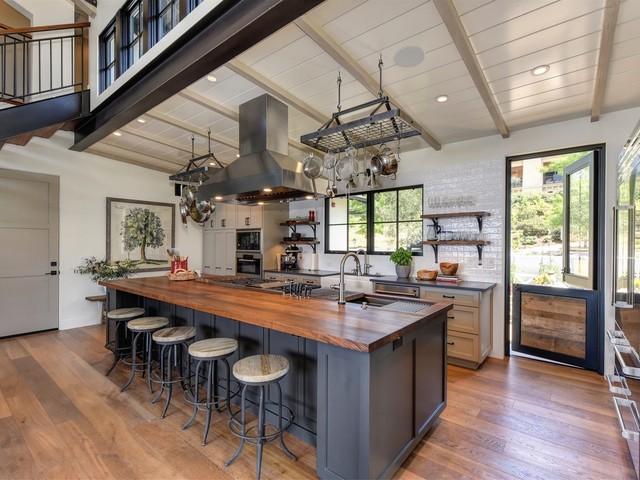The real estate industry is on the cusp of a significant transformation. Fueled by technological advancements, shifting demographics, and environmental concerns, the future of real estate promises exciting innovations and a focus on sustainability, flexibility, and tech-driven experiences. Let’s delve into some key trends that will likely shape the future of this dynamic sector:
Technological Transformation: PropTech Takes Center Stage:
Technology (PropTech) is rapidly reshaping the real estate landscape. Virtual reality tours allow potential buyers to explore properties remotely, while augmented reality applications can help visualize potential renovations or furniture layouts in a space. Artificial intelligence (AI) is streamlining property management processes, automating tasks like tenant screening and rent collection. Additionally, blockchain technology has the potential to revolutionize real estate transactions, making them more secure, transparent, and efficient.
Sustainability and Energy Efficiency: A Growing Priority:
As environmental concerns escalate, sustainability will become a core consideration in real estate development and investment decisions. Buildings with energy-efficient features, renewable energy sources like solar panels, and eco-friendly materials will be increasingly sought after. Green building certifications and energy ratings will likely become even more critical factors for attracting tenants and buyers.
The Rise of Smart Homes and Connected Communities:
Smart home technology is rapidly integrating into residential spaces. Imagine controlling lights, thermostats, and appliances through your smartphone or voice commands. This trend will not only enhance convenience and energy efficiency but also potentially increase property values. Additionally, the concept of connected communities where residents can access shared amenities, book services, and interact with each other through dedicated apps will likely gain traction, fostering a sense of community and a more integrated living experience.
Shifting Demographics and Flexible Living Arrangements:
The rise of the millennial generation as homebuyers will continue to influence the market. This demographic prioritizes urban living with easy access to amenities and co-working spaces. Additionally, the growing senior population might drive demand for age-in-place features and accessible housing options. Flexible living arrangements like co-living spaces or short-term rentals might also see an increase, catering to a mobile workforce and a growing tourism sector.
The Evolving Role of Real Estate Agents:
While technology will undoubtedly play a larger role, the human touch will remain crucial in real estate transactions. The role of real estate agents will likely evolve, with a greater emphasis on data analysis, market expertise, and providing personalized guidance to navigate the complexities of buying, selling, and investing in a tech-driven market. Agents who can leverage technology effectively while offering human connection and expertise will be well-positioned for success in the future.
Looking Ahead: A Dynamic and Evolving Landscape
The future of real estate is a canvas waiting to be painted with innovation, sustainability, and technology. By staying informed about emerging trends and adapting their strategies, stakeholders in the industry – from developers and investors to agents and homeowners – can prepare to navigate this exciting and evolving landscape.
Conclusion
The future of real estate promises a dynamic and exciting environment. Technology will enhance experiences, sustainability will become paramount, and flexible living arrangements will cater to evolving demographics. For those who embrace change and adapt to these trends, the future of real estate holds immense opportunities for success and a more connected approach to the places we live, work, and play. For further insights into industry forecasts and expert opinions, consider exploring resources from reputable real estate associations and research groups [https://www.urbanland.uli.org/].


